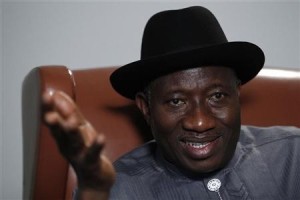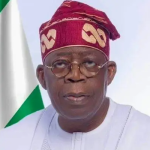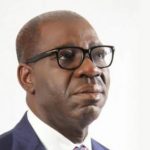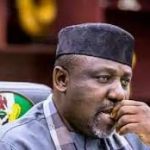Probability of APC winning the 2015 Presidential Elections (II)
Articles/Opinion Wednesday, August 27th, 2014
By Uche Igwe
Almost six months ago when I wrote the first part of this article, I got more than two hundred comments, several emails and even phone calls. This was despite the fact that I do not encourage feedback on phone. The volume of responses demonstrated many things to me. The first is that it re-echoed the growing dissatisfaction that many Nigerians have about the non-performing government of President Goodluck Jonathan. Many citizens (are)were fed up with the fact that the government (was)is yet to deliver on its promises on critical sectors like security and power, yet petty and grand corruption continue erupting from many corners of the polity.
The second is the tangible enthusiasm with which the citizens are awaiting an alternative choice offered by the All Progressives Congress, APC, which will expand the options of the electorate and further widen the democratic space.
I had highlighted a few apprehensions in the said article about some of the factors which could enhance or inhibit the chances for the defeat of incumbent President Jonathan by an APC Presidential candidate. I had pointed to the founders of the party they will need to beat a tactical retreat at some point, in order to give their party a new face with less political baggage. I also stressed the need for the party to assemble enabling structures that will help neutralize the regional foundations of some of the parties that came together for the merger in order to improve the national outlook of the party. I was worried (am still) about the accusations of religious insensitivity being levelled against the party and the consequences such an image could have on its fortunes in a country that is apparently divided on such issues. I submitted that the APC should desist from attacking the personality of President Jonathan but rather concentrate on exposing inadequacies of his leadership style by offering an alternative program. I was particular about the character of the person that APC will feature as the Presidential candidate and how this will be the game changer for the party. I will return to the last point in greater detail later.
Six months after that article, I must say that only a few things have changed. The first is that the APC had managed to hold a successful convention that produced a crop of leadership that is apparently more diverse. But the emergence of the new Chairman, Chief John Oyegun, was not without controversies. Many of the critics of the 75 year–old former Edo State Governor, insist that his victory was a coronation and not an election, which might have contributed to the exit of some members who had reservations with the process. Some pundits argued that the age of the Edo-born politician may hinder his performance on his new rigorous office as the head of an opposition party preparing for election. Many key members of the new executive except few fall into the same age bracket. It means that APC might have failed to deploy the abundant youthful resources in their midst to strategic uses. It will be recalled that the former interim Chairman of the party, Alhaji Bisi Akande, is also 75 years old. There are a few others who have even raised questions about the real age of the National Youth Leader, Alhaji Ibrahim Dasuki Jalo, but let us leave that for another conversation.
Now that the dust of the convention has started settling, many Nigerians have started asking about the alternative programs that the opposition party has to offer. Although the elections are barely six months away, I guess that there is still an opportunity for APC to aggressively market her programs to Nigerians especially in areas where the current federal government has performed woefully. It is unsettling however that APC is yet to show the Nigerian public that they are any different from PDP. With the current movements and cross crossing of politicians between PDP and APC, it will take the Nigerian public eye some time to spot the difference when they start showing them. Besides, some of the states under the control of APC are said to be performing well, but the party is yet to showcase them appropriately and convincingly. For instance many observers continue to applaud the Governors of Lagos, Rivers and Oyo states in terms of infrastructure, but the APC is yet to take ownership and derive electoral mileage from these positive examples. There is still a lot of work to be done on the APC’s image. Elements within the PDP have intensified a campaign to demonize the party by linking it with the Boko Haram terrorists in the North-Eastern Nigeria.
My final and probably most important point is the issue of who emerges as the Presidential flag bearer of the party. Out of the many people who may be interested in the contest, it seems that General Muhammadu Buhari (rtd) is the leading contender. Those who support him argue that he has a broad followership among a spectrum of citizens especially the talakawas (peasants and the poor) in the North, which contributed largely to the millions of votes he gathered in past elections. His promoters try to present him as a strict disciplinarian, especially looking at the programs implemented under his administration as a military head of state. However, his popularity outside the North has been negatively affected by his portrayal in the media as a violent extremist and religious bigot. Although many of his supporters continuously dismiss this as untrue, that image has stuck to the Nigerian public and may be the greatest obstacle to the emergence of the slim General. Furthermore, Buhari’s leadership credentials do not resonate eloquently with young voters who were born after August 1985 and who may be in the majority today. Other contenders like the former Vice President Atiku Abubakar have confirmed that they are also in the race. For the former VP, the political network he built across the country during his tenure in office, will come handy but he is said to be unpopular within the party, especially among the powerbrokers. Governor Rabiu Kwankwaso of Kano State is another aspirant for the Presidential ticket. His popularity beyond his state is not so high. However, he is said to be relying on his former colleagues among the G5 governors to gather support of delegates to clinch the ticket. Other people to watch closely are Governor Aliyu Wammako of Sokoto State and Senator Bukola Saraki who are reportedly ‘dark horse’ options for the top position on the platform of the party.
As Nigerians await the outcome of APC primaries, a group of young political leaders have started visible mobilisation of support nationwide to persuade APC leaders to consider zoning the Presidential slot to the South-South region, with a caveat that the candidate will only serve one term. Those who are encouraging this option suggest that it is a middle ground and the easiest way to match and possibly neutralize the power of incumbency of President Jonathan by taking the battle to his home front. Others insist that there are strong indications that the ruling party may be preparing to exploit tribal and religious sentiments in 2015 elections and that APC could counterbalance this strategy by fielding a Christian candidate who has a broad support base among both Christians and Muslims nationwide. Who such a candidate will be remains a matter of conjecture. Regardless of where the pendulum swings, the personality and character of the Presidential candidate will provide an insight into the kind of contest Nigerians should expect in the forthcoming elections. If the APC does not get it right, then Nigerians will have no option but to still stick to ‘the-devil-we-know’. If that happens then it will be most likely that President Jonathan of the PDP will be handed another term on a platter of gold, despite his celebrated incompetence. The options are still open for the APC leaders to choose between closing their ranks and putting up a hot electoral contest with the incumbent, and allowing selfish ambition, quest for control intra-party rancour and other pecuniary considerations to strap them to the opposition bench for another four years.
Related Posts
Short URL: https://www.africanexaminer.com/?p=16767





















